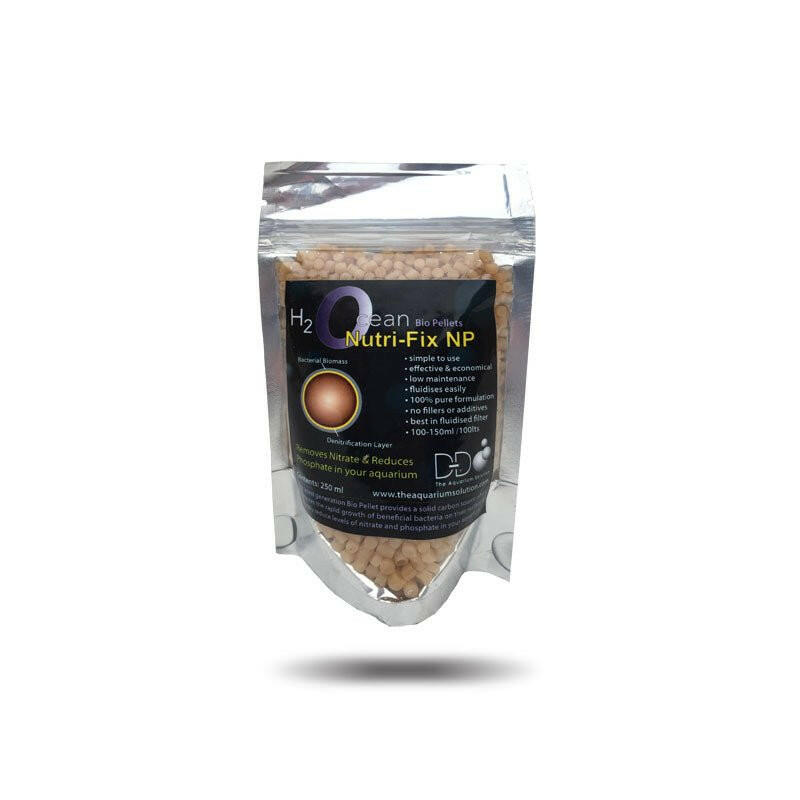Unlike indiscriminate and potentially risky carbon dosing methods such as vodka or vinegar which entail adding carbon sources directly to the main aquarium to promote bacterial growth, Bio Pellets provide the same carbon source for the bacteria without the potential problems.
Nutri-Fix NP is a 100% pure, fixed carbon source bio-polymer that can be used in a fluidised reactor for the promotion of rapid bacterial growth within a controlled environment away from the main display, promoting only those bacteria relevant to the task of nutrient uptake.
The Bio-Polymer acts as a primary food source to encourage healthy bacterial colonisation which in turn assimilates or fixes nitrate and phosphate as that population grows. With these nutrients locked into the biomass of the bacterial population, the bio film or ‘bacterial mulm’ can then be exported via physical agitation of the media within a reactor to make way for further bacterial growth.
The effluent carrying these bacterial films can then be directed towards the intake of a protein skimmer for physical removal via foam fractionation. Continuous exportation of excess nitrate and phosphate are a direct result of this reaction.










